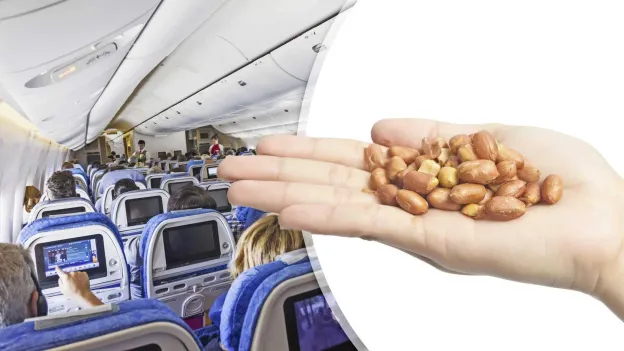Study: Peanut particles in airplanes unlikely to cause allergic reactions, say scientists

13
World
October 16, 2024 13:10
british medical journal - A recent study conducted with over 80 severely allergic children suggests that peanut particles in the air of airplanes are unlikely to trigger allergic reactions.
A study published in the British Medical Journal reveals that particles from peanuts are not transmitted through the ventilation system. 84 extremely allergic children were placed near a bowl of peanuts in a confined space as an experiment, resulting in no reaction or only very mild reactions. It was found that only when peanuts are actively shelled does a small amount of peanut dust get into the air, but even that was insufficient to induce reactions.
Despite frequent heated debates between parents and airplane crew, the article highlights that the risk of experiencing an allergic reaction from airborne particles is 10-100 times higher on the ground than aboard an aircraft.
The author, a pulmonologist, provides advice for allergy sufferers on airplanes, including carrying adrenaline injectors at all times, diligently cleaning armrests, tray tables, seat backs, and entertainment systems as contact with allergens is a common trigger for reactions. There is a possibility of allergens lingering from the previous passenger, particularly if not cleaned properly during airport turnover.
The article suggests that airlines should have adrenaline injectors on board for cases of anaphylactic shock. A complete 'peanut ban' is not recommended, as it may create a false sense of security. Generally, allergy patients are considered to have minimal risk from airborne particles as airplane air conditioning systems are highly effective in filtering out contaminants, even the smallest viruses.